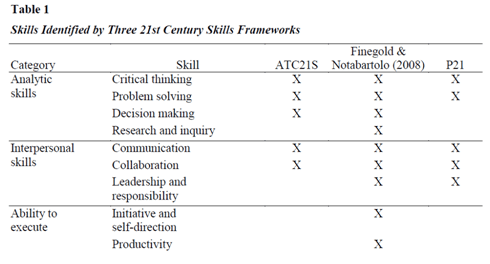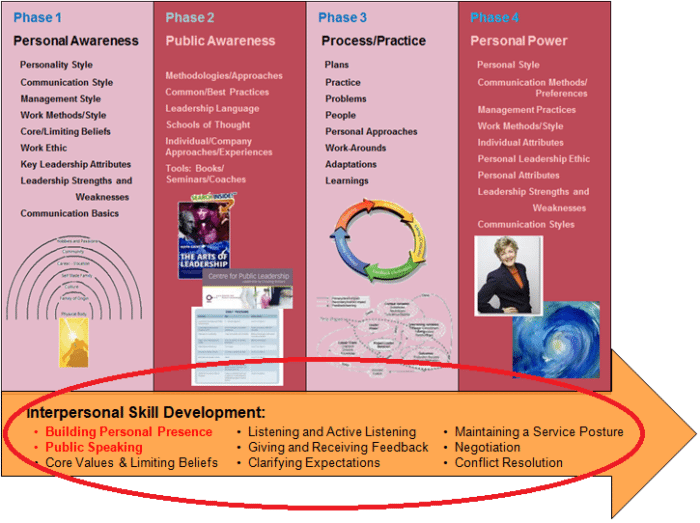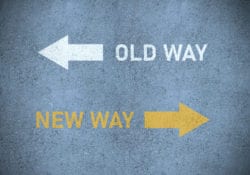Strong Point’s Leadership Rule #8: Work to be Great at How You Relate
The disparity between the number of professional scales that rate interpersonal skills among the most important in the workplace and the number of CEOs and leaders who lament about the grave lack of these skills in their operating environments should lead you to ask the question: Why don’t more companies provide the environment and the tools to institutionally develop, practice and master these relationship skills if they’re needed and valued so much?
To illustrate my point, the National Association of Colleges and Employers (NACE) Job Outlook survey for 2016, says that more than 80 percent of responding employers said they look for evidence of leadership skills on a candidate’s resume, and nearly as many, 70% and 69% respectively, seek out written and verbal communication skills.
The 2012 Business Communication Quarterly Article written by Marcel M. Robles, called Executive Perceptions of the Top 10 Soft Skills Needed in Today’s Workplace, cited Communication: – oral, speaking capability, written, presenting, and listening skills as the #1 valued skill set in the workplace.
The Educational Testing Services (ETS) organization of Princeton NJ, published a report in 2013 Identifying the Most Important 21st Century Workforce Competencies. This report was written by Jeremy Burrus, Teresa Jackson, Nuo Xi and Jonathan Steinberg and places Interpersonal skills, and specifically, Communication, Collaboration, Leadership and Responsibility Skills second only to Analytical Skills such as critical thinking, problem-solving and decision making, on the list of most important workplace competencies.

Conversely, a Salesforce.com blog written by Stuart Leung on June 29, 2016, reveals research that indicates that more than 60% of employers say that applicants are not demonstrating sufficient communication and interpersonal skills to be considered for jobs. 77% of these same employers, writes Leung, say and recognize that soft skills, also known as interpersonal and relationship skills, are just as important as hard skills such as Business Analysis, Project Management; Software Development or Scientific Research.
The Chapter 5 excerpt from The Healthcare Leader’s Guide to Actions, Awareness, and Perception, by Carson F. Dye and Brett D. Lee (Health Administration Press, 2016) clearly describes the disparity between communication and relational skills and organizational needs, that I’m talking about…
“Although interpersonal skills are increasingly recognized as being critical to leadership success in healthcare, they are not an easy subject to teach, and their objective outcome metrics are difficult to quantify. As a result, many formal leadership development programs still do not have a significant focus on these skills. In fact, a study sanctioned by the American College of Healthcare Executives found that a significant percentage of senior executives rated recent graduates of healthcare leadership programs as being less prepared to effectively build and manage relationships than any prior generation of leaders. In addition, communication and interpersonal skills were among the lowest rated of all the key leadership competencies surveyed (Howard and Silverstein 2011). Results of the study, (*detailed in Exhibit 5.1of the Report), suggest that, even if the healthcare and business industries recognize the importance of maintaining effective relationships, organizations (and aspiring leaders) cannot rely on formal educational avenues alone to prepare managers for this fundamental task.”
This disparity between the need for strength in interpersonal skills and the available capability among professionals within an organization, in my experience through Strong Point’s work, exists across industries and across functional disciplines and generational boundaries. This is why we do our work. This is Strong Point’s namesake. We stand in the gap between leadership demand and leadership capability, working to help others to build the skills necessary to better relate to their bosses, their peers, and their co-workers. We work to strengthen both Business and Leadership skills and capability. My skills are lost on you if we can’t get along and care for each other. I’m talking about you, my customers, and my solution teams and your customers and your project teams and everyone else with whom we work. Every engagement, every year after passing year, I personally see the poise and the presence and the relationship power impressed upon me by the leaders and mentors of my coming-up years, languishing and vanishing as vital and required skills for operational and leadership effectiveness in today’s and tomorrow’s workplace.
What comes to my mind is the Henry Ford quote that says:
Why is it every time I ask for a pair of hands, they come with a brain attached?
This quote makes me smile when I think of it, because I can see and hear Mr. Ford’s thinking. He views people as tools. He wants people to act like tools and just do the work. Instead, they ask questions and complain and otherwise disrupt perfectly good standard processes. The truth of the matter is, if you want to be an effective leader, you first have to consider yourself a tool! Next time someone calls you a “tool,” say Thank You! I am a Tool! Your body is a beacon; a transmitter and the most important communication tool you have. You ARE your tool.
Strong Point’s Leadership Methodology
Strong Point’s Leadership Methodology considers the development of Interpersonal skills as foundational, and a continuous, endeavor with regard to Leadership Development.

Learning the basics of Body Language and Public Speaking are two of the first and most important components of Strong Point’s Interpersonal Skill Development Program. This part of the leadership development program seeks to help participants steady and strengthen the body as a communication tool and reduce the impact of the “noise” generated when a person is speaking and communicating. It also teaches learners just what messages they are sending with their body language when they are NOT speaking. Body Language Basic and Advanced Classes help build and strengthen personal and professional presence and power. If I am noticing the sway in your stance, the nervous habit you have of pushing back your hair, the fact that your arms are folded in a stiff, unyielding posture, or you’re looking away, then I’m not really listening, as well as I could be, to the message you are intending to send. In the same way, noticing the frustration in your voice, or the verbal tics, the “um’s,” “ya-knows,” “uhs,” or “likes,” you keep repeating, all but make it impossible for me to concentrate on our conversation and our work together. These are lessons to be learned and reinforced through Strong Point’s Leadership Skill Building Practice which begins with Building Personal Presence and Public Speaking.
Every leader knows these are necessary foundational skills for effective leadership. What’s often assumed by leaders is that you will arrive to work with these basic leadership capabilities. What I’ve learned through Strong Point’s work is that leaders often discover these skills are not present in you or others in the workplace in general, and they quite actively complain. A lot less often, do they move to enact leadership development plans that pay to upgrade interpersonal skills in the same way upgrades for systems and tools in the business and technology spheres are made and paid for. We focus less on people versus machines, I think, for a good reason. The brains that Henry Ford references in his quote have much more latent capability than the tool in the hands of that brain. It’s harder work to reach leadership effectiveness, and results are slower and less predictable.
When you reach it though, true Leadership Capability, it’s not dull like a hammer. The force of Leadership Effectiveness unleashed in an operating environment builds a business in a way no hammer ever could. The brains attached to the hands look for ways to systematize, optimize and reinvent processes that make the best use of those hands. That’s what our brains are for!
What’s needed, in my view, is for Leaders to see this gap in operational and leadership effectiveness and to meet it with 1) a plan to provide employees the time and space to practice interpersonal skills, 2) a strong partnership with a Leadership Development Provider to facilitate and support skill building, and 3) a running budget earmarked to nurture and continually develop these skills in employees of the organization. The best place to develop, practice, and master interpersonal skills is at work! Practicing these skills with the people with whom you work adds more power and results to the effort.
Following through Strong Point’s Interpersonal Skill Development beyond Personal Presence and Public Speaking, includes development work in these additional areas:
- Public Speaking
- Body Language and Personal Presence
- Core Values and Limiting Beliefs
- Listening and Active Listening
- Giving and Receiving Feedback
- Clarifying Expectations
- Maintaining a Service Orientation and Posture
- Negotiation
- Resolving Conflict
A Harvard Business Review (HBR) Article written by Dave Winsborough and Thomas Chamorro-Premuzic, dated January 25, 2017, called Great Teams Are About Personalities, Not Just Skills highlights the body of scientific research that says the kinds of people on a professional team are not as relevant as the Core Values and Beliefs of team members and how they interact with each other. When teams deeply understand:
- What role they have on the team
- How they interact with the rest of the team
- Whether their Core Values and Core Beliefs align with the team’s
The team’s performance is greatly enhanced. Strong Point focuses Interpersonal Skill Development on teams and does so in repetitive cycles to consistently reinforce, strengthen and advance interpersonal effectiveness. The list of skills named above is the core set of interpersonal skills that need to be mastered to help individuals and teams better relate to others. Think of Leadership Skill Labs as gyms where individuals and teams can work-on and work-out these interpersonal skills. Be the Leader who stands in the gap between need and capability, and helps to fund and support these Leadership Development efforts. Recognize that people are not just brains behind the tools. They are the tools.




